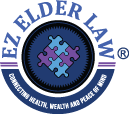Terminology
Terminology is sometimes confusing. At times, the terms “guardian” and “conservator” are used interchangeably. Georgia formerly used the term/phrase “guardian of the person” to describe a fiduciary making personal decisions and “guardian of the property” to describe the fiduciary making financial decisions (Note 1). Tennessee describes a guardian as a fiduciary appointed for a minor, while conservator describes a fiduciary appointed for a disabled adult (Note 2).
Georgia now distinguishes the terms, with “guardian” describing the fiduciary making personal decisions and “conservator” describing the fiduciary making decisions regarding property and finances (Note 3). See also Uniform Adult Guardianship and Protective Proceedings Act, § 102(2) (defining conservator) and § 102(3) (defining guardian). Although some find use of the term pejorative, in most instances, the subject of a guardianship or conservatorship is referred to as the “ward” (Note 4).
See O.C.G.A. § 29-1-1, defining terms used in Georgia’s Guardianship and Conservatorship statute.
Who is the client?
The initial task in every representation is identifying the client (Note 5). Whether an action is contested or uncontested, the petitioner’s interests are generally adverse those of the alleged ward (Note 6). For that reason, it is unlikely that an attorney would represent both the petitioner and the ward (Note 7). Nonetheless, in some States Rule 1.14 of the Rules of Professional Conduct permits (or requires) protective action on behalf of a client where the lawyer reasonably believes the client has diminished capacity. In some States, this includes seeking the appointment of a guardian. See, e.g., Georgia Rules of Professional Conduct, Rule 1.14(b). (Note 8).
When initially approaching a case, often the attorney explores whether he or she can have a prospective ward sign a power of attorney and/or advance directive (Note 9). In a hypothetical case where Mr. Jones asks you about taking care of his mom, can you first try to get a power of attorney and health care advance directive signed and, if that proves unsuccessful, still represent Mr. Jones as petitioner? Did you become mom’s attorney by preparing documents for her signature? What do you do if mom asks what the documents mean? Does the exercise of explaining the documents constitute giving mom legal advice? Can you give mom legal advice after speaking with a prospective guardian or conservator about the possibility of filing a guardianship petition? If you do speak with mom about executing those documents and she declines to sign them, can you still represent Mr. Jones in a guardianship action against mom?
The difficulty in resolving these issues is acknowledged (without being resolved) in J. Krauskopf et al., Elderlaw: Advocacy for the Aging, Second (West 1993), § 9.7. “The attorney who practices elder law is often presented with a difficult problem in determining who is actually the client. When the attorney is contacted by an adult daughter to establish a guardianship for her mother because the daughter believes the mother to be incapacitated, the attorney should consider whether he or she has a duty to the mother. Under most circumstances, the duty of the attorney is predominately to the daughter/proposed guardian and will involve advocating the guardianship on behalf of the daughter client and educating her about the rights, powers, duties and responsibilities of her position.” The lines are even more blurry when the attorney was hired to protect family wealth. Id. “Can the attorney represent the family, or are the interests so disparate that an inherent conflict of interest prevents multiple representation of the parties?”
Rule 1.7(a) of the Georgia Rules of Professional Conduct provides: “A lawyer shall not represent or continue to represent a client if there is a significant risk that the lawyer’s own interests or the lawyer’s duties to another client, a former client, or a third person will materially and adversely affect the representation of the client.” Rule 1.7(c)(2) provides that informed consent to joint representation is not possible if the representation “includes the assertion of a claim by one client against another client represented by the lawyer in the same or substantially related proceeding.” Comment 7 explains subsection (c)(2): Paragraph (c)(2) prohibits representation of opposing parties in the same or a similar proceeding including simultaneous representation of parties whose interests may conflict, such as co-plaintiffs or co-defendants. An impermissible conflict may exist by reason of substantial discrepancy in the parties’ testimony, incompatibility in positions in relation to an opposing party.
Rule 1.14 (which varies from State to State) addresses situation where the attorney-client relationship has attached and the client has diminished capacity. Georgia’s Rule 1.14 provides as follows:
a. When a client’s capacity to make adequately considered decisions in connection with a representation is diminished, whether because of minority, mental impairment or for some other reason, the lawyer shall, as far as reasonably possible, maintain a normal client-lawyer relationship with the client.
b. When the lawyer reasonably believes that the client has diminished capacity, is at risk of substantial physical, financial or other harm unless action is taken and cannot adequately act in the client’s own interest, the lawyer may take reasonably necessary protective action, including consulting with individuals or entities that have the ability to take action to protect the client and, in appropriate cases, seeking the appointment of a guardian ad litem, conservator or guardian (Note 10).
c. Information relating to the representation of a client with diminished capacity is protected by Rule 1.6. When taking protective action pursuant to paragraph (b), the lawyer is impliedly authorized under Rule 1.6(a) to reveal information about the client, but only to the extent reasonably necessary to protect the client’s interests.
The ACTEC Commentaries to Rule 1.14 address situations where the lawyer is hired to represent the fiduciary and where the lawyer represents a client with diminished capacity (Note 11). The ACTEC commentaries indicate that if the lawyer did not previously represent the alleged ward, then the client is the fiduciary; the lawyer may nonetheless owe certain duties to the disabled person. If the lawyer represented an individual with diminished capacity prior to the incapacity, then the lawyer may continue to represent the client. In some cases, a lawyer may represent the guardian or conservator of a former client if the representation is not directly adverse. The commentaries indicate this is not possible if there is a significant risk that joint representation of one would materially limit obligations owed to the other. Although the commentaries do not offer any examples, situations where the representation “might” not be adverse include representing the individual who was designated by the client as guardian or conservator if the person to be appointed indicates that he or she will follow the wishes of the former client. The best practice would likely involve bringing the matter to the Court’s attention and allowing the Court to determine whether continued representation is possible after full disclosure.
___________
Notes:
- The Alabama Supreme Court, in Sears v. Hampton, 143 So.3d 151 (Ala. 2013) differentiated the two offices as follows: “A guardianship concerns the control over health, support, education or maintenance of an incapacitated person, whereas a conservatorship is usually limited to control over the property and finances of a protected person.”
- In Tennessee, the term guardian applies to a fiduciary appointed for a minor, while the term conservator is used to describe the fiduciary appointed for an adult. T.C.A. § 34-1-101(4) and (10).
- O.C.G.A. § 29-1-1(2) (defining conservator); O.C.G.A. § 29-1-1(7) (defining guardian). To avoid confusion, the new terms – e.g., conservator rather than guardian of property — are used in describing cases that predate the change in terminology.
- R. Fleming and L. Davis, Elder Law Answer Book, Third Ed. (Aspen 2012), Q. 11:7.
- F. Johns, Guardianship Adjudications Examined within the Context of the ABA Model Rules of Professional Conduct, 37 Stetson L. Rev. 243, 246 (2007).
- Even where the petitioner believes he or she is advocating for the ward, the interests are still deemed to be adverse because the guardianship and conservatorship process involves transferring legal rights from the alleged ward to a fiduciary against a backdrop presumption that every individual has legal capacity. The adversarial nature of these conflicting concepts creates a “conflict of interest,” which is the second inquiry a lawyer must make after identifying the client. Guardianship Adjudications Examined within the Context of the ABA Model Rules, supra, p. 246-247.
- The Court found the conduct of one petitioner’s attorney “extremely perplexing” where he filed motions allegedly on behalf of the ward in the Groves case. “It is similarly unclear how Mr. Meeks could simultaneously represent both Ms. Groves and Ms. Travis and Proctor because their positions regarding Ms. Groves’ capacity – judged by the papers filed on their behalf – were patently inconsistent and opposed.” In re Conservatorship of Groves, 109 S.W.3d 317, 346.
- Fleming and Davis indicate that, even where permitted, it may not be advisable for the ward’s attorney to file a petition. “It is critically important to confirm that there is no less invasive alternative. It is also important that the attorney confirm that the client’s original goals are not frustrated by the proceeding, that no confidences or secrets are impermissibly disclosed, and that the attorney is certain that the facts clearly support the action.” Elder Law Answer Book, Q. 11:16.
- Has she become a prospective client? See Model Rules of Professional Conduct, Rule 1.18.
- NAELA Aspirational Standard E.7 indicates that guardianship should be the last resort. And see NAELA, Aspirational Standards for the Practice of Elder Law and Special Needs Law, Second Edition.
- ACTEC Commentary to Rule 1.14.
BLOG POSTS
Probate Court Reversed for Ordering Conservatorship Accounting Before Determining Identity of Estate’s Personal Representative
The Georgia Court of Appeals decided the case of In re Bessie Mae Blake on February 20, 2024. Willis Blake was appointed as his mother’s conservator in 2000, but he was a poor record keeper. Although he was required to set up a separate account for Bessie Mae, keep records of expenses and file annual […]
Guardianship Evaluation is Admissible Regardless of Stipulation
Guardianship Evaluation In most cases I’ve been involved in, the evaluator’s report is stipulated into evidence or the evaluator is called as a witness. The reason is that the report cannot be cross-examined so the thought was that it’s subject to a hearsay objection. A recent case taught me otherwise (at least in Georgia). In […]
Georgia Court of Appeals Revisits the Preponderance-of-the-Evidence Standard
In White v. Stanley (Georgia Ct. App. 10/3/2023), Rhonda White appealed a jury verdict in favor of the defendants relating to a motor vehicle collision. White argued that the trial court gave an improper jury instruction regarding the Preponderance-of-the-Evidence Standard. The trial court instructed the jury using the existing pattern jury instructions. However, the law […]
Sometimes You Must Say No
Sometimes you just have to say No “No” isn’t a four-letter word. Saying “no” isn’t necessarily bad and you shouldn’t feel bad when you say it. Part of saying no means taking a stand. It can mean standing up to injustice. For example, our legal system is, for the most part, dependent on people saying […]

Family Acrimony Deemed Sufficient to Disregard Nomination of Guardian
In In re Wheeler (Ga. Ct. App. 6/6/2023), the Court of Appeals upheld the Probate Court’s decision that (1) there was sufficient evidence to impose a guardianship and conservatorship, and (2) that a neutral third-party be appointed as guardian instead of the person nominated by the ward. Because the reasoning in this case is “thin,” […]

Approving Settlements for Minors
In April, 2022, we reported that HB 620 altered how settlements for minors can be approved under O.C.G.A. § 29-3-3, at least in cases where the trial court approves direct payment to a trust. Prior to passage of HB 620, Section 29-3-3 read as follows: 2021 Version For purposes of this Code section, the term […]

Elder Law Mishmash June 2023
The following is a mishmash of information on various Elder Law, Special Needs Law, and Estate Planning issues. It also includes anything else we found interesting during the month of June, 2023. We will continue updating from time to time throughout the month. Last updated 6/8/2023. Keep in mind, you are using linked content at […]

Failure to Admit Evaluator’s Report Required Reversal of Conservatorship Order
Ms. Humprey was a hospital patient and the University of Tennessee Medical Center filed a petition for Conservatorship. The petition alleged she was unable to make appropriate decisions regarding her treatment and medical care. Petitioner attached the report of Dr. Taylor Wright in support of its petition. The Court appointed a guardian ad litem and […]

Ohio Court of Appeals Affirms Appointment of Guardian Despite Questionable Transcript from Probate Court Hearing
On September 15, 2022, the Ohio Court of Appeals affirmed a Probate Court decision appointing a guardian despite a spotty record of the proceedings below. In In re Guardianship of S.B., the proposed was suffered a traumatic brain injury. In 2004, the ward’s father filed a petition for guardianship and was appointed guardian. In 2007, […]

Conservator has exclusive power to bring, defend or participate in lawsuits for a ward
in Hall v. Davis Lawn Care Service, Inc., 314 Ga. 488 (S22G0019 8/23/2022), the Supreme Court unravelled some messy litigation where a conservator was appointed for a minor, but was deemed by the lower courts as having forfeited his exclusive power to bring, defend or participate in legal proceedings for his ward pursuant to OCGA […]

